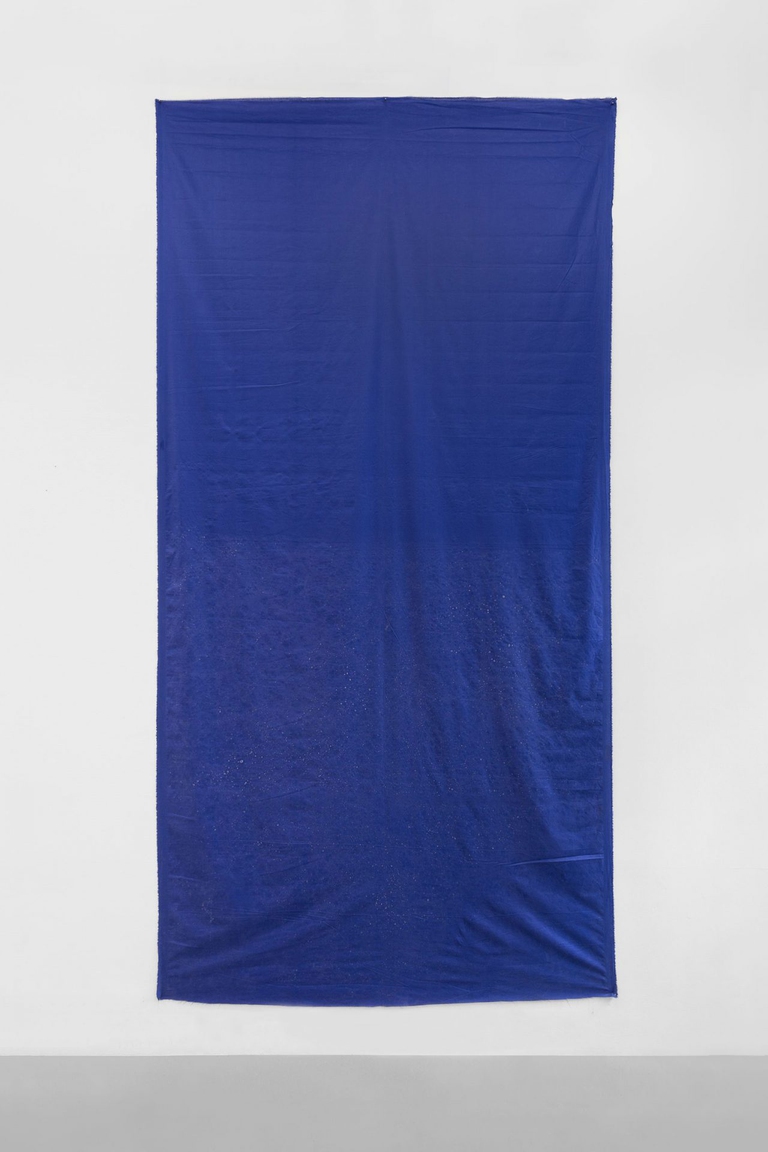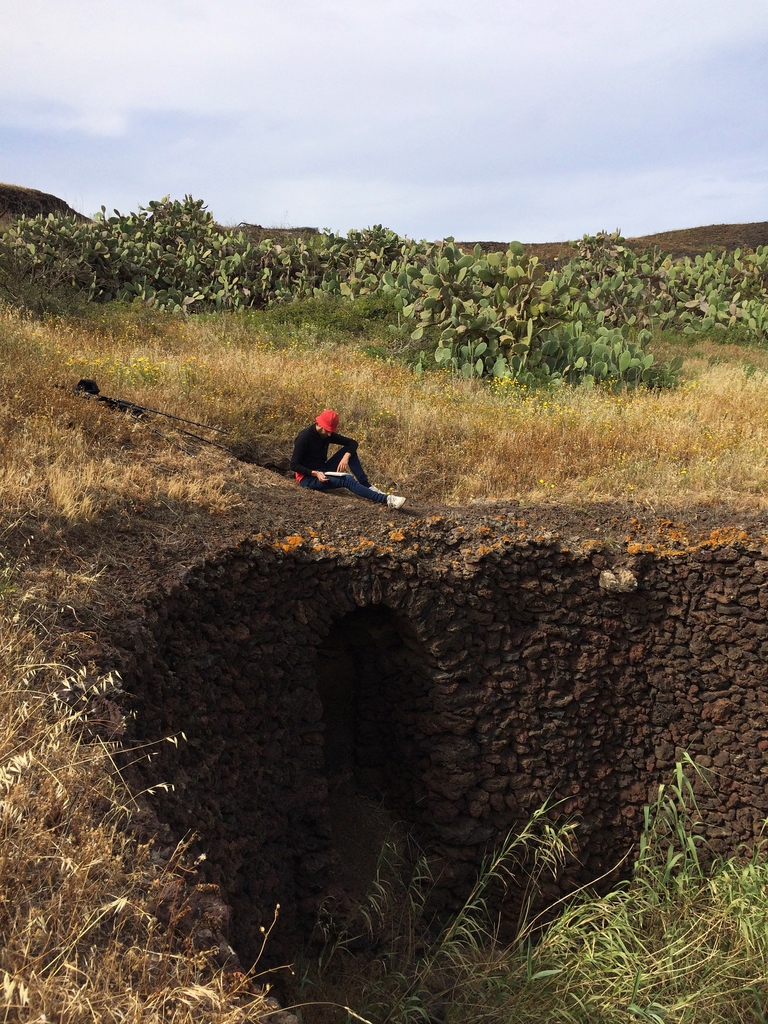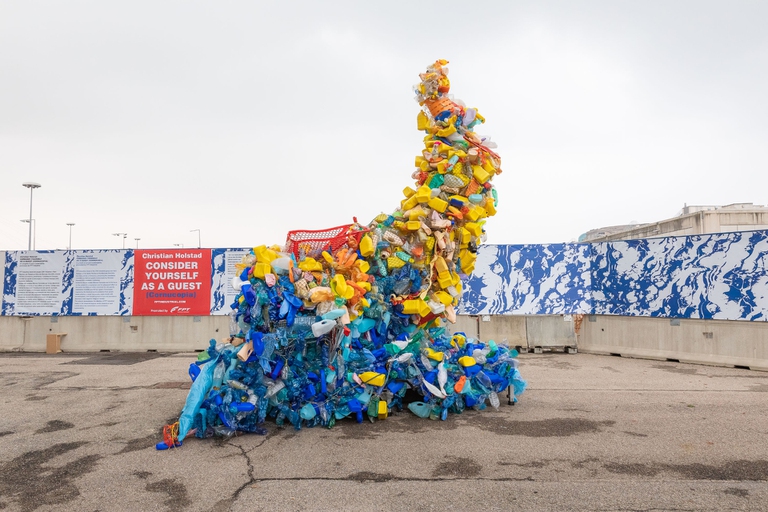
Kyoto’s premier photography festival, Kyotographie, grows in stature with the launch of a new music festival, Kyotophonie, held in the spring and autumn.
The winner of the 2020 FTP Prize for Sustainable Art, created to highlight the need for environmental awareness in contemporary art, has been announced.
The worlds of art and sustainability have grown increasingly interlinked. At Artissima, Italy’s foremost contemporary art fair, these two spheres have been successfully brought together once more thanks to the FPT Prize for Sustainable Art, which this year was awarded to Renato Leotta. The fair’s 2020 edition, Artissima Unplugged, provides an interactive and immersive online experience, creating digital spaces where creativity can continue to thrive. The prize, strongly backed by FPT Industrial, a leading industrial motor manufacturer and part of CNH Industrial, explores sustainability in the creative process in a wide sense, highlighting the fact that every artwork is the fruit of an evolutionary process. Across all its phases, this process combines people, materials and lives that have to come to terms with organisational, logistic and economic mechanisms. The prize represents another step forward in the much-needed dialogue between innovation, art and sustainability.
The prize was assigned by an international jury composed of Marianne Dobner, Curator of the Mumok Museum Moderner Kunst Stiftung Ludwig Wien in Vienna, Austria; Andrea Lissoni, Director of Munich’s Haus der Kunst in Germany; and Luca Lo Pinto, Art Director of the MACRO Museum of Contemporary Art in Rome, Italy. The judges gave the following motivation for selecting Renato Leotta:
Renato Leotta has shown – through a process-based practice, employing natural phenomena as tools to produce his work – a poetic way to establish a connection between human and non-human conditions. Minimalistic at first sight, Leotta’s work tackles important environmental issues without becoming documental. ‘Mare’ presents a new approach to a traditional genre such as landscape painting, reinterpreting its process and transforming the landscape itself into the medium.
In collaboration with Lisbon’s Galeria Madragoa, Leotta presented Mare in Artissima Unplugged’s Frenetic Stasis exhibit at the Galleria Civica d’Arte Moderna e Contemporanea (Civic Gallery of Modern and Contemporary Art, GAM) in Turin, Italy.
Leotta lives and works between Turin and Acireale, in the province of Catania, a place of profound inspiration for his art given his family’s Sicilian roots. His work originates in the act of observing and using landscapes as subjects.
Following the prize’s announcement, Leotta told us: “Mare represents a horizon where I live, in Sicily, but describes a universal natural phenomenon. I created it directly in the sea: I submerged the canvases on which I then ‘recorded’ these immersions, and thus the height of the tide. This technique has something to do with painting and echoes mythical sea views. It’s at once the sea, the whole Mediterranean, and my small homeland, my Heimat”.
“I observe nature but I don’t know if I consider it a source of inspiration. I relate to it as an observer, often at a slow and structured pace. My relationship is ‘immersive’. I try to record its phenomena”.
“To me, creating sustainable art relates mostly to the materials I use. As well a sustainable idea, and the poetic imagery that derives from it, I think about it in a productive, physical and practical sense. It is important to use materials that are compatible with the environment, which isn’t always easy: think about sculpture, for example. I work a lot with paper and cardboard, simple materials”.
As Leotta himself says, the work is a “horizon”, part of a series of canvasses in different shades of blue that the artist partially submerges in the sea and then leaves to dry on the beach, under the sun. The physical phenomenon of salt crystallisation draws a pattern on the blue surface, thus tracing an ideal horizon on the canvas.
In this work, as in all his research, the artist reveals a unique aptitude for observing and representing the landscape. Traces of natural elements – the sea, soil, trees and their fruits, air, living beings – in their different shapes and forms become both medium and subject. The resulting artworks therefore fuse real and ideal environments.
The first edition of the FTP Prize for Sustainable Art isn’t the company’s debut in bringing together art and sustainability. A concrete commitment to socially, economically and environmentally relevant themes first emerged last year, when FTP Industrial took part in Italy’s most important artistic event, the Venice Biennale. It was the Italian Pavilion’s main partner and for the first time presented Consider Yourself as a Guest (Cornucopia), an installation by American artist Christian Holstad. This high-impact work highlights the serious problem of marine pollution, and it was also exhibited at Artissima 2019 in Turin.
The collaboration continued into 2020, the year of the global pandemic, a difficult one for the art world as well as the industrial sector. Nonetheless, FPT decided to carry forward last year’s work by launching a prize that emphasises the connection between art, sustainability and innovation, three spheres that may appear distant but that need to come together now more than ever.
To this end, Carlo Moroni, Head of Communication at FPT Industrial, states: “Sustainability is important to us, for many reasons. And so is the way we communicate our commitment in this context, which we have looked into very carefully. FPT Industrial has always worked with a human touch and recognises that art is close to people, it creates connections. Therefore, our connection with this world came naturally. There are many ways to express sustainability, but we chose art because we really like it”.
“The story’s first chapter was the project at the Venice Biennale, Consider Yourself as a Guest (Cornucopia) by Christian Holstad. This was the result of another project, A Pesca di Plastica (‘fishing for plastic,’ ed.) developed in collaboration with the fishermen’s consortium in San Benedetto del Tronto (in Ascoli Piceno province, ed.): six tonnes of waste were collected in six weeks, 15 per cent of which was plastic. FPT Industrial makes the engines that power fishing boats, so by supporting this initiative we were able to tell the story of how our products are deployed for lesser-known, sustainable purposes. The visualisation of this concept came to fruition thanks to Holstad’s ingenuity, which led the artist to create Cornucopia using the plastic collected from the sea. From this first project based on our products, now we’ve moved a step ahead by focusing on the production process. The winning artwork, Mare, was created with special care, and using a fascinating and sustainable method. We can tell a story through this artwork. We see our efforts towards sustainability reflected in Leotta‘s own endeavour. FTP Industrial has made a serious commitment, as a member of the World Class Manufacturing programme, which will definitely carry on beyond Artissima’s FPT Prize for Sustainable Art“.
Siamo anche su WhatsApp. Segui il canale ufficiale LifeGate per restare aggiornata, aggiornato sulle ultime notizie e sulle nostre attività.
![]()
Quest'opera è distribuita con Licenza Creative Commons Attribuzione - Non commerciale - Non opere derivate 4.0 Internazionale.
Kyoto’s premier photography festival, Kyotographie, grows in stature with the launch of a new music festival, Kyotophonie, held in the spring and autumn.
The small state of Mizoram in northeast India has a thriving handicraft industry, with artisans making a living by selling products made from bamboo.
Many British cultural institutions have ended their relationship with oil giant BP in recent years, thanks to pressure from activists and the public.
Communities across India are celebrating Durga Puja, a festival that stands as an example of the communal unity which is under threat in the country .
Through stories of encounters between humans and animals, Our Wild Calling offers a way out of an age of solitude. We speak to author Richard Louv.
Survival, multiculturalism, plastic islands. Musician Grey Filastine recounts his adventure aboard the Arka Kinari, which set sail in 2019 and spent much of last year adrift in the Pacific because of the pandemic.
Chinese filmmaker Chloé Zhao made history, becoming the first Asian woman to win an Academy Award as well as a Golden Globe for Best Director for Nomadland.
A list of some of the best films on ethical and sustainable fashion shown at past editions of the Milan Fashion Film Festival.
“For there is always light, if only we’re brave enough to see it”. Meet Amanda Gorman, the young Black poet who capitvated hearts at Biden’s inauguration.










